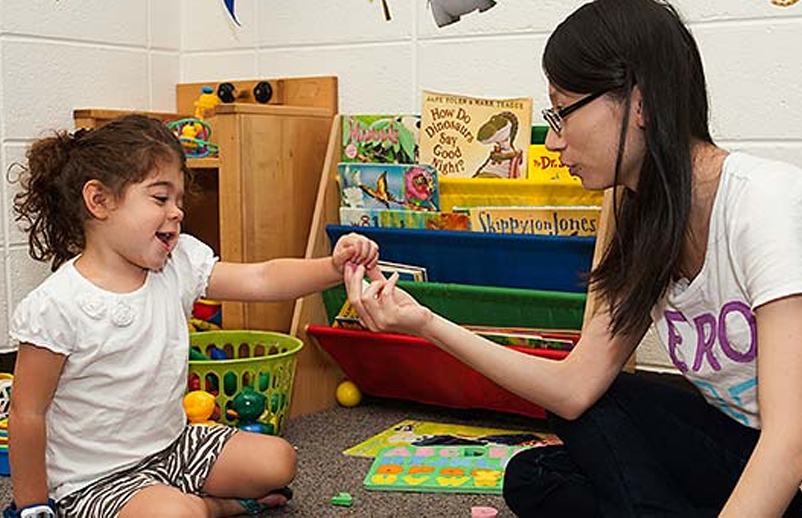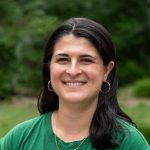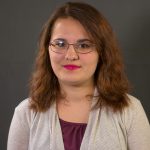School of Education
Ph.D. in Education
Learning Sciences Specialization
The Learning Sciences is an interdisciplinary specialization area that focuses on the systematic study of learning and teaching, human development, and educational technology as well as the application of research to design educational innovations and interventions. The area draws from faculty expertise in developmental psychology, educational psychology, cognitive science, educational technology, science education, and special education to examine pressing educational and developmental problems.
Students in this specialization
- Gain a rich understanding of the cognitive, developmental, and social processes that underlie learning.
- Conduct research on language, cognitive, and numerical development, STEM learning, learning differences, and the use of technology and media in education with nationally-known, award-winning faculty.
- Develop a rich methodological toolkit for designing learning and instructional investigations and assessing the outcomes of educational interventions.
- Study how learning takes place outside of the classroom by working with faculty who bring learning science to places like supermarkets, homes, museums, and after-school programs.
In addition to the Doctoral Core Courses, the following specialization courses are required of all PhD students in Learning Sciences.
- EDUC 804: How Students Learn
- EDUC 815: Design of Learning Environments
- EDUC 819: Disciplinary Knowledge in Learning Sciences
Learning Sciences students typically choose two SCA or evaluation, measurement, and statistics courses to satisfy the content core requirement. They also typically choose two of the qualitative courses (EDUC 852, EDUC 858, EDUC 859) and one quantitative course (EDUC 812, EDUC 865, EDUC 874) or two quantitative courses and one qualitative course for their research methods core.
Sample Course Schedules
Sample Learning Sciences course schedules for students who enter the PhD program in the following semesters are available through the links below.
Qualifying Project
All PhD students in Learning Sciences must also pass a specialization area qualifying project in Learning Sciences.
Please view the procedures, along with a form to be completed by the end of students’ first year in the program.
Dissertation Options
Students within the Learning Sciences specialization have the option of pursuing a three-paper dissertation instead of the traditional dissertation format. If you are interested in this option, please consult with your advisor.
Our full-time Ph.D. students are typically funded for up to four years, and many complete their degree during this time period. Funding packages for Ph.D. students include a monthly stipend, tuition scholarship, health insurance and some conference travel to present papers. Ph.D. students are also eligible to be nominated for several college and university competitive merit-based financial awards. Funding to continue research apprenticeships during the summer may also be available.
For more information about this financial support, visit CEHD’s graduate tuition page.
Full-time Ph.D. students may qualify for financial aid, assistantships, scholarships, and loans to help offset the cost of tuition, housing, and other expenses.
Scholarships and assistantship awards are subject to availability. Information is subject to change.
Our graduates accept academic positions in research universities, departments of education, and school districts, as well as industry positions in educational organizations. Graduates with a learning sciences specialization are highly sought after professionals, given their broad-based, interdisciplinary preparation in developmental and education research.
For example, recent PhD in Education graduates with a learning sciences specialization have accepted positions at Cornell University, the Educational Testing Service, Farleigh Dickinson University, Michigan State University, Pace University, Rider University, and University of Missouri.
Student Spotlight

Caroline Gaudreau
“Throughout my time here, I have been impressed with the collaborative and supportive nature of CEHD faculty and students. The department works as a team, pushes each other, and also genuinely supports one another. I am grateful for these opportunities and feel well prepared to begin the dissertation phase of the program.”
Program Faculty
Our interdisciplinary faculty hold grants from the National Science Foundation, the Institute of Education Sciences, the Spencer Foundation, and private foundations. They have been recognized for their work by the American Educational Research Association, the American Psychological
Association, the Association for Psychological Science, and the Society for Research in Child Development.
Graduate Students
Alumni Profile
Jessica Rodrigues
“I pursued my PhD at UD’s SOE because of the opportunity to learn from and work with leaders in the field. I knew I would receive the training required to advance my research skills and to be competitive on the job market. When I was offered the assistant professor position at the University of Missouri, I emailed my UD advisor Nancy Jordan to share the news. We chatted on the phone for a while, and she gave me great advice for considering the job and moving forward. She continues to support me and to celebrate my successes!”





















